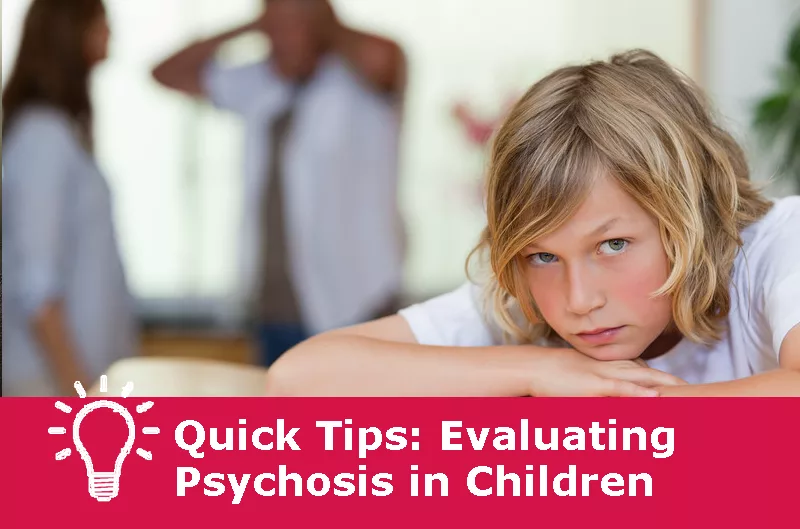Psychosis in children is difficult to determine, especially in younger kids who might not understand the concept of psychotic behavior. In more obvious cases, children will come into your office saying that they are hearing voices, or that someone is chasing them. But how do you evaluate a child for psychosis when there aren’t any obvious cues? The answer might lie in what happens at night.
Claudio Cepeda MD, Clinical Associate Professor in the Department of Psychiatry at UT Health, San Antonio, TX, said in a recent interview with The Carlat Child Psychiatrist Report that most of the kids with psychosis that he sees are symptomatic at night. He thus recommends the following tips for evaluating child psychosis in your patients:
Start by asking the child patient, “Some kids tell me they are afraid at night. Are you afraid at night?” Then, to determine what’s specifically frightening them ask further questions, including the following:
Of course, since nighttime fear affects many children who don’t have psychosis, you’ll need to then probe further. Keep in mind, for example, that many kids without psychosis might be afraid that Freddy Krueger is in their closet at night, but most will calm down once a parent assures them that there’s no one in there.
A psychotic child, however, will not be able to fall asleep, and will persist in his belief no matter how much reassurance he receives.
Overall, it is good to tell parents that they should continue to reassure kids that there is nothing to fear in their room at night. But in doing so, parents should never actually check the closet or under the bed: That will undermine the child’s ability to develop a rational sense of things, and support at lot of anxious rechecking.
If the child says he isn’t afraid at night, yet you still haven’t ruled out psychosis, then consider asking the following questions:
Claudio Cepeda MD, Clinical Associate Professor in the Department of Psychiatry at UT Health, San Antonio, TX, said in a recent interview with The Carlat Child Psychiatrist Report that most of the kids with psychosis that he sees are symptomatic at night. He thus recommends the following tips for evaluating child psychosis in your patients:
Start by asking the child patient, “Some kids tell me they are afraid at night. Are you afraid at night?” Then, to determine what’s specifically frightening them ask further questions, including the following:
- “Kids tell me they are scared of what’s in their closet. Does that scare you?” Psychotic ideation in children is often focused on the closet, which kids see as hiding places for monsters or other scary presences.
- “I know what’s outside of the windows can scare some kids. Are you afraid of that?” Some kids think that people are going to come in through the windows, and hurt them or their family.
- “I know there are some kids who worry about what’s under their bed. How about you?”
Of course, since nighttime fear affects many children who don’t have psychosis, you’ll need to then probe further. Keep in mind, for example, that many kids without psychosis might be afraid that Freddy Krueger is in their closet at night, but most will calm down once a parent assures them that there’s no one in there.
A psychotic child, however, will not be able to fall asleep, and will persist in his belief no matter how much reassurance he receives.
Overall, it is good to tell parents that they should continue to reassure kids that there is nothing to fear in their room at night. But in doing so, parents should never actually check the closet or under the bed: That will undermine the child’s ability to develop a rational sense of things, and support at lot of anxious rechecking.
If the child says he isn’t afraid at night, yet you still haven’t ruled out psychosis, then consider asking the following questions:
- Do you ever hear voices talking to you when there’s nobody around?
- Do you see things like monsters or ghosts?
- Do you ever feel someone touching you?
- Do you smell things others don’t smell?
Subscribers can read the full interview with Dr. Cepeda, including his take on how to assess paranoia in children, in the August 2017 issue of The Carlat Child Psychiatry Report.


_-The-Breakthrough-Antipsychotic-That-Could-Change-Everything.webp?t=1729528747)



